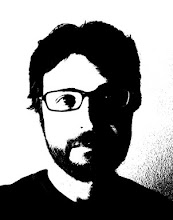 Queens College professor Harold Schechter is interested in subjects that simultaneously repel and attract most people. He has written extensively about serial killers, violence and death.
Queens College professor Harold Schechter is interested in subjects that simultaneously repel and attract most people. He has written extensively about serial killers, violence and death.His latest work, THE WHOLE DEATH CATALOG takes at the rituals and ephemera that surround death. Schechter talks about the psychology, history and trends of death amongst the living.
LISTEN: HAROLD SCHECHTER
Rolling Stone journalist Mikal Gilmore has been up close to death in two different ways. In 1996 he was assigned to cover the final days of psychedelic guru Timothy Leary.
Leary, who had terminal cancer, wanted to turn his death into a media event, and had plans to broadcast his final moments live on the internet. Gilmore had been close to a high-profile death before. His brother, Gary Gilmore, was the first person executed after the Supreme Court upheld death penalty statutes in 1976.
LISTEN: MIKAL GILMORE - TWO DIFFERENT DEATHS







